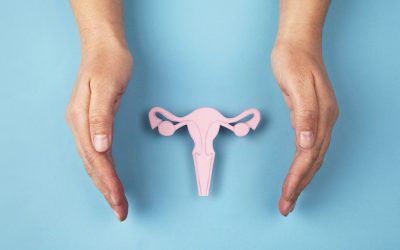If a childhood vaccination could keep your kids from getting cancer 20 years from now, would you do it? That’s the sort of protection that the HPV vaccine offers. It guards against certain sexually transmitted infections that can turn into cancer years down the road. HPV vaccination is a simple step that you can take today for your child’s healthier tomorrow.
Disclaimer: The following is not intended as medical advice and should not be used to make any diagnoses or in lieu of a doctor’s guidance. Talk to your doctor and/or child’s pediatrician to learn more about the HPV vaccine and whether it’s right for you and/or your child.
The Facts About HPV
There are over 100 types of human papillomavirus (HPV). Most forms don’t cause long-term problems, but some do. This family of viruses can cause sexually transmitted infections (STIs) and cancer, among other things. Four types in particular — 6, 11, 16 and 18 — are responsible for most HPV diseases, including STIs and cancer.
HPV spreads through sexual contact. Different forms of sexual contact, including vaginal sex, anal and oral sex, can also spread this disease.
Sexually transmitted HPV infections are very common. According to some estimates, almost all sexually active people are exposed to HPV at some point. There may be around 42 million Americans with an active infection at any given time.
Some strains of HPV can cause genital warts. Those are small bumps on the genitals. Many are so small that you can’t even see them, but some can grow quite large. Other strains of HPV don’t cause any noticeable symptoms.
Most people clear HPV infections on their own, though it can take around two years to do so.
But unfortunately, not every case of HPV goes away as simply as that.
For some people, this virus can cause cancer to develop later in life. In fact, most cases of cervical cancer are linked to HPV. The infection can also lead to other anal, genital and throat cancers.
Each year, around 36,000 people are diagnosed with HPV-linked cancers. Many of those patients may have contracted HPV years — even decades — before getting diagnosed.
Why Choose HPV Vaccination
There was a time when cervical cancer was one of the top causes of female cancer deaths. Today, cervical cancer is largely preventable. Between pre-cancer screenings and HPV vaccinations, the frequency of cervical cancer has dropped. Still, around 4,000 women die of cervical cancer each year even with an available vaccine. And while HPV is responsible for more than nine out of 10 cervical cancer cases, it doesn’t just affect the cervix. This virus can also be the cause of cancer elsewhere in the body, including the vulva, vagina, anus, penis and throat.
Fortunately, there’s a vaccine that can mitigate the risk of getting these cancers. Available in a few different forms, the HPV vaccine protects against several strains of human papillomavirus, including high-risk strains that can lead to cancer. The CDC estimates that HPV vaccination of 11- and 12-year-olds could prevent these cancers about 90% of the time.
Other genital cancers may not be responsible for as many deaths as cervical cancer, but prevention is still important. There’s a screening test that can catch cervical abnormalities while they’re still in the precancerous stage. No such screenings exist for other genitals.
People who have genital cancer may not find out until the disease has reached an advanced stage.
Childhood may seem like an odd time to protect your kids against STIs and adult cancers. But the vaccines are scheduled at this age because they provide protection before someone is exposed to HPV. Once an infection happens, getting a shot won’t help much — if at all. Choosing to vaccinate your kids now could help them stay healthy as adults.
For Boys and Girls
Given the protection that the HPV vaccine offers against cervical cancer, you might assume this vaccine is just for girls. But boys may benefit from HPV vaccination, too.
For girls, it can help prevent cervical, vaginal and vulvar cancers. Since the shot was introduced in 2006, the rate of infection among teenage girls for certain strains of HPV has dropped by 88%.
The shot could also be good for your daughter’s heart. Scientists think that there may be a connection between heart disease and HPV in women.
For both males and females, getting the HPV shot can protect against genital warts. It may also reduce the chance of developing anal cancer. Experts think it could even guard against some mouth and throat cancers.
Plus, boys who have gotten the HPV shot may be less likely to spread this STI to their partners. They may also have some protection against cancer of the penis.
When to Give the HPV Shot
Vaccination for HPV usually requires two shots. Ideally, kids will be fully vaccinated before they begin having sex.
The CDC recommends that most kids get their first dose when they’re 11 or 12 years old. The second shot will be administered six to 12 months later.
It’s safe for kids to get the first shot as early as age 9. The two-dose schedule also works for young teens.
Once kids turn 15, it’s not too late for HPV vaccination, but the dosing schedule will change. Anyone age 15 or above needs three shots. They’re given during a six-month window.
Even young adults can benefit from three doses of the shot. The CDC advises that anyone between the ages of 15 and 26 who hasn’t already been vaccinated should talk to a doctor about this catch-up regimen.
In some cases, people between the ages of 27 and 45 should also get vaccinated. If you’re an adult who doesn’t have HPV protection, you may want to ask your doctor if this shot would be a good idea for you.
HPV Vaccine Side Effects and Concerns
It’s normal for kids to have a sore arm after getting an HPV shot. The injection site might also look red or swollen for a short time. Some people feel faint after getting the vaccine, but staying seated for 15 minutes can help with that. Other side effects that teens sometimes get are weakness, tiredness or an upset stomach.
You may hear rumors that HPV shots aren’t safe, but that’s not the case. This vaccine has been in use for 15 years now. Experts are continually monitoring its effects to ensure that vaccination isn’t putting kids at risk.
Some people may worry that giving their kids the HPV shot will encourage them to become sexually active at an early age. So far, research hasn’t supported that claim. In studies of teen girls, those who got the HPV shot haven’t been more likely to get pregnant or contract other STIs.
One thing to make sure your kids know is that HPV shots aren’t a substitute for safe sex. It’s still important to use condoms. HPV vaccination only guards against certain strains. People can still get different forms of HPV or other STIs.
Questions to Ask About HPV Vaccination
Your child’s doctor can help your family learn more about vaccination for HPV. Bring your questions about this shot to the next well visit.
Good questions to get the conversation going include:
- Should my child get the HPV shot, and when?
- How will HPV vaccines help my child?
- Will insurance cover HPV vaccination?
- Is it too late for my teen to get an HPV vaccine?
- What does my teen need to know about safe sex after vaccination?
You may have additional questions as well. Your family’s pediatrician is the best source of reliable information on this and other childhood vaccinations.







